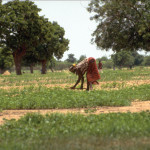In this month’s Gender-Nutrition Idea Exchange blog, Dr. Kathryn Yount, Professor and Asa Griggs Candler Chair of Global Health at Emory University, discusses how to conceptualize and measure the process of women’s empowerment and why this issue is important for development work. Read the full blog on the CGIAR Research Program on Agriculture for Nutrition and >> Read more
New IFPRI Discussion Paper: Using cognitive interviewing to improve the Women’s Empowerment in Agriculture Index survey instruments: Evidence from Bangladesh and Uganda
HAZEL J. MALAPIT, KATHRYN SPROULE, CHIARA KOVARIK This paper describes the cognitive interviews undertaken in Bangladesh and Uganda in 2014 as part of the second round of pilots intended to refine the original version of the Women’s Empowerment in Agricultural Index (WEAI). The WEAI is a survey-based tool that assesses gendered empowerment in agriculture. Baseline >> Read more
EVENT: Is Women’s Empowerment a Pathway to Improving Child Health Outcomes in an Integrated Agriculture and Nutrition Program? Evidence from a Randomized Control Trial in Burkina Faso
June 8, 12pm-1pm EST (instructions for joining virtually provided below) Presentation by Jessica Heckert, Associate Research Fellow, Poverty, Health, and Nutrition Division, IFPRI Abstract Integrated agriculture, nutrition, and health programs often target women beneficiaries because of their potential to improve children’s health. However, evidence linking women’s empowerment to improved child health is drawn primarily from cross-sectional data. We >> Read more
Women, Land and Food event materials now available
The Women, Land and Food event hosted by the International Food Policy Research Institute (IFPRI), USAID, and Landesa on October 27, 2015, examined the challenges, programming lessons and evidence demonstrating the profound link between land rights, food security and women’s empowerment. Now, you can further explore related event content: Watch a recording of the full discussion View exclusive >> Read more
Publication in Dædalus: Invisible Women
New publication from Catherine Bertini in Dædalus, the Journal of the American Academy of Arts & Sciences Abstract: Women are ubiquitous and critical to the nutritional well-being of their families, yet they are often invisible to policy-makers, public officials, community leaders, and researchers. Effecting significant decreases in the number of hungry poor people, as well as the >> Read more
Webinar: The Abbreviated Women’s Empowerment in Agriculture Index (A-WEAI) – September 23
IFPRI will be hosting a webinar “The Abbreviated Women’s Empowerment in Agriculture Index (A-WEAI)” on September 23rd from 9:30-11:00 am EST. More information about the session and a link to register is below. This webinar will focus on the newly-launched abbreviated version of the Women’s Empowerment in Agriculture Index (A-WEAI). The A-WEAI is a shorter, >> Read more
IFPRI Gender Methods Seminar: The Impact of Microfinance on Factors Empowering Women: Regional and Delivery Mechanisms in India’s SHG Programme
Materials from the July 20, 2015 Gender Methods Seminar are now available online. Professor Ranjula Bali Swain presented at IFPRI on the impact of microfinance on women's empowerment, examining how the impact varies with respect to the location and type of group linkage of the respondent. The slides are available on the IFPRI Gender Slideshare site, >> Read more
Debate: Economics or Politics: Which Drives Women’s Empowerment?
A debate hosted by the National Democratic Institute and Women, Business, and the Law (World Bank) Thursday, April 16, 2015 Room I 2-250, World Bank Group I Building, 1850 I St NW 11:30am-12:30pm RSVP Here Participants: Irene Khan (Economic Empowerment) is Director-General of the International Development Law Organization (IDLO). The first woman to hold this >> Read more
New publication: What dimensions of women’s empowerment matter for nutrition in Ghana?
Abstract: This paper investigates linkages between women’s empowerment in agriculture and the nutritional status of women and children using 2012 baseline data from the Feed the Future population-based survey in northern Ghana. Using a new survey-based index, the women’s Empowerment in Agriculture Index, we conduct individual-level analyses of nutrition-related indicators including exclusive breastfeeding, children’s dietary diversity >> Read more
When Women Flourish…We Can End Hunger
The 2015 Hunger Report, When Women Flourish…We Can End Hunger, released by Bread for the World Institute, identifies the empowerment of women and girls as essential in ending hunger, extreme poverty, and malnutrition around the world and in the United States. “Eliminating barriers and empowering women around the world is key to ending hunger in our >> Read more

